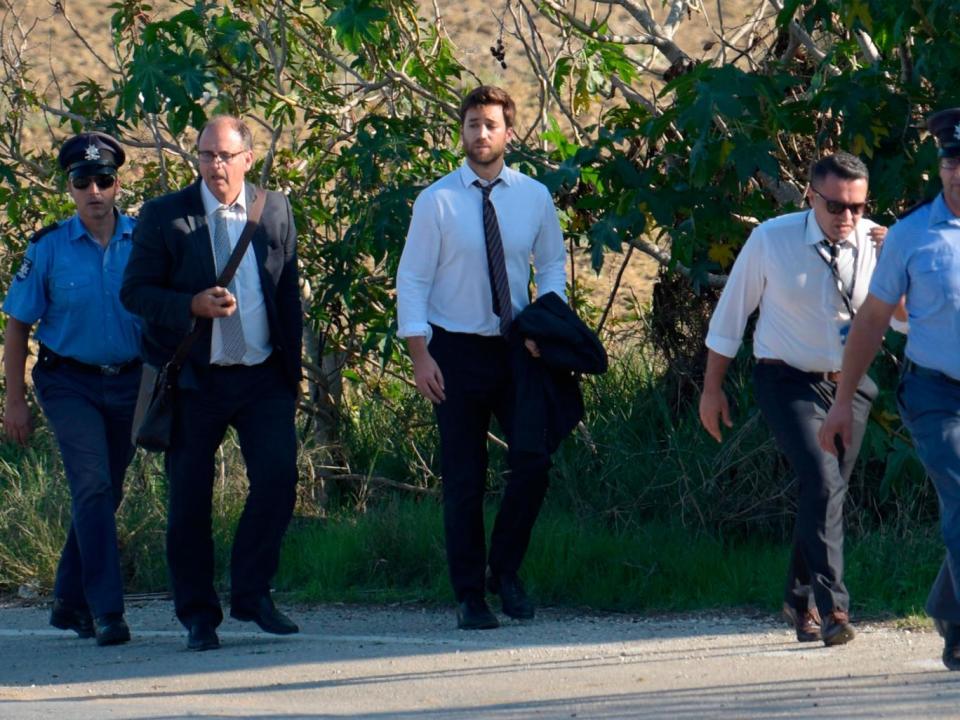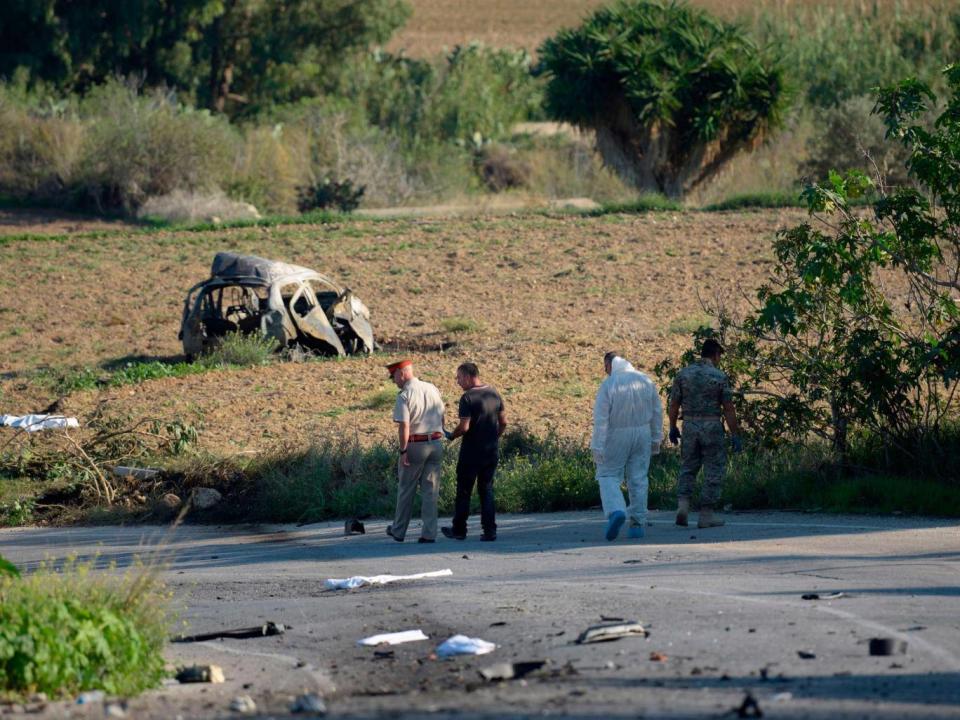Daphne Caruana Galizia: Investigative journalist killed in Malta car bomb was ‘assassinated for exposing corruption’

The son of Malta’s well-known investigative journalist, who worked on the Panama Papers exposé, said she was assassinated because of her work exposing corruption.
Daphne Caruana Galizia, 53, was killed in a car bomb on Monday soon after leaving her home in Mosta, on the north side of the island. The explosion occurred near the village of Bidnija, sending the car off the road and into a nearby field.
Her son, Matthew Caruana Galizia, said she was “assassinated because she stood between the rule of law and those who sought to violate it, like many strong journalists”.
“But she was also targeted because she was the only person doing so,” he said. “This is what happens when the institutions of the state are incapacitated – the last person left standing is often a journalist. Which makes her the first person left dead.”
Mr Caruana Galizia, who was on the International Consortium of Investigative Journalists team that won the Pulitzer Prize for its work on the Panama Papers scandal, wrote a harrowing account of discovering his mother’s burning car and trying to help her.
“I am never going to forget, running around the inferno in the field, trying to figure out a way to open the door, the horn of the car still blaring, screaming at two policemen who turned up with a single, fire extinguisher to use it,” he wrote.
The police officers stared at him and said: “‘I’m sorry, there is nothing we can do’,” he wrote. “I looked down and there were my mother’s body parts all around me. I realised they were right, it was hopeless. ‘Who is in the car?’ they asked me. ‘My mother is in the car. She is dead. She is dead because of your incompetence’.”

Around 3,000 people took to the streets of Sliema, near the capital of Valletta, to hold a silent candlelit vigil for Ms Caruana Galizia on Monday night.
The journalist, who had worked to expose Malta’s links to offshore tax havens through the leaked Panama Papers, had written a twice-weekly column for The Malta Independent since 1996 and wrote a blog, Running Commentary.
She had filed a police report two weeks ago saying she had been receiving threats, authorities told news outlets on Monday.

Both the Maltese Prime Minister, Joseph Muscat, and the opposition leader, Adrian Delia, condemned her killing, calling it a “political murder”.
The Prime Minister said: “Everyone knows Ms Caruana Galizia was a harsh critic of mine, both politically and personally, but nobody can justify this barbaric act in any way.”
Mr Delia called for an independent investigation into her death and said an investigation led by the commissioner of police, the army chief or the duty magistrate – all of whom were criticised by the journalist – would not be accepted. He added that killing Ms Caruana Galizia was an attack on democracy and freedom of expression.
“Daphne played a vitally important role in unearthing serious allegations of money laundering and corruption in Malta, including those involving senior figures in the Maltese government,” said Sven Giegold, a Greens member in the European Parliament.
Ms Caruana Galizia had been sued more than once for libel over allegations made in her blog. Mr Muscat was in the process of suing her, while Mr Delia had sued over stories linking him to a prostitution racket in London. Economy Minister Chris Cardona claimed libel when she wrote that he visited a brothel while in Germany on government business.
She had also alleged that the Prime Minister’s wife, Michelle, along with the nation’s energy minister and the government’s chief of staff had received money from Azerbaijan in offshore holdings in Panama. Mr Muscat and his wife denied the claims.
The European Commission condemned the killing, calling for those responsible to be brought to justice.
“We are horrified by the fact that the well-known and respected journalist .. lost her life yesterday in what was a seemingly targeted attack,” Commission spokesman Margaritis Schinas told reporters.
“The right of a journalist to investigate, ask uncomfortable questions and report effectively is at the heart of our values and needs to be guaranteed at all times. We trust now that justice will be brought even if this will not be enough to right this wrong,” he added.
Additional reporting by agencies

 Yahoo News
Yahoo News 
